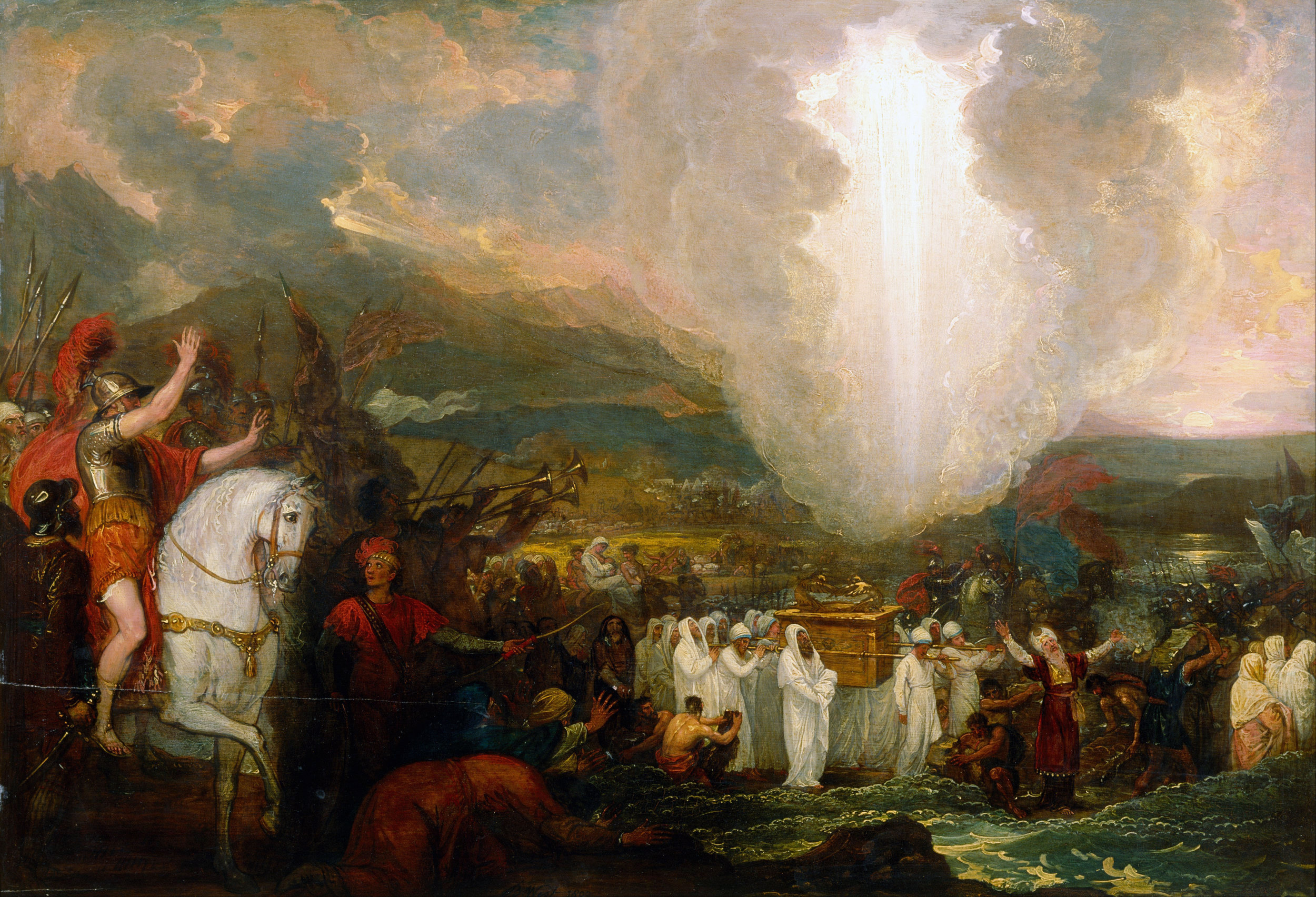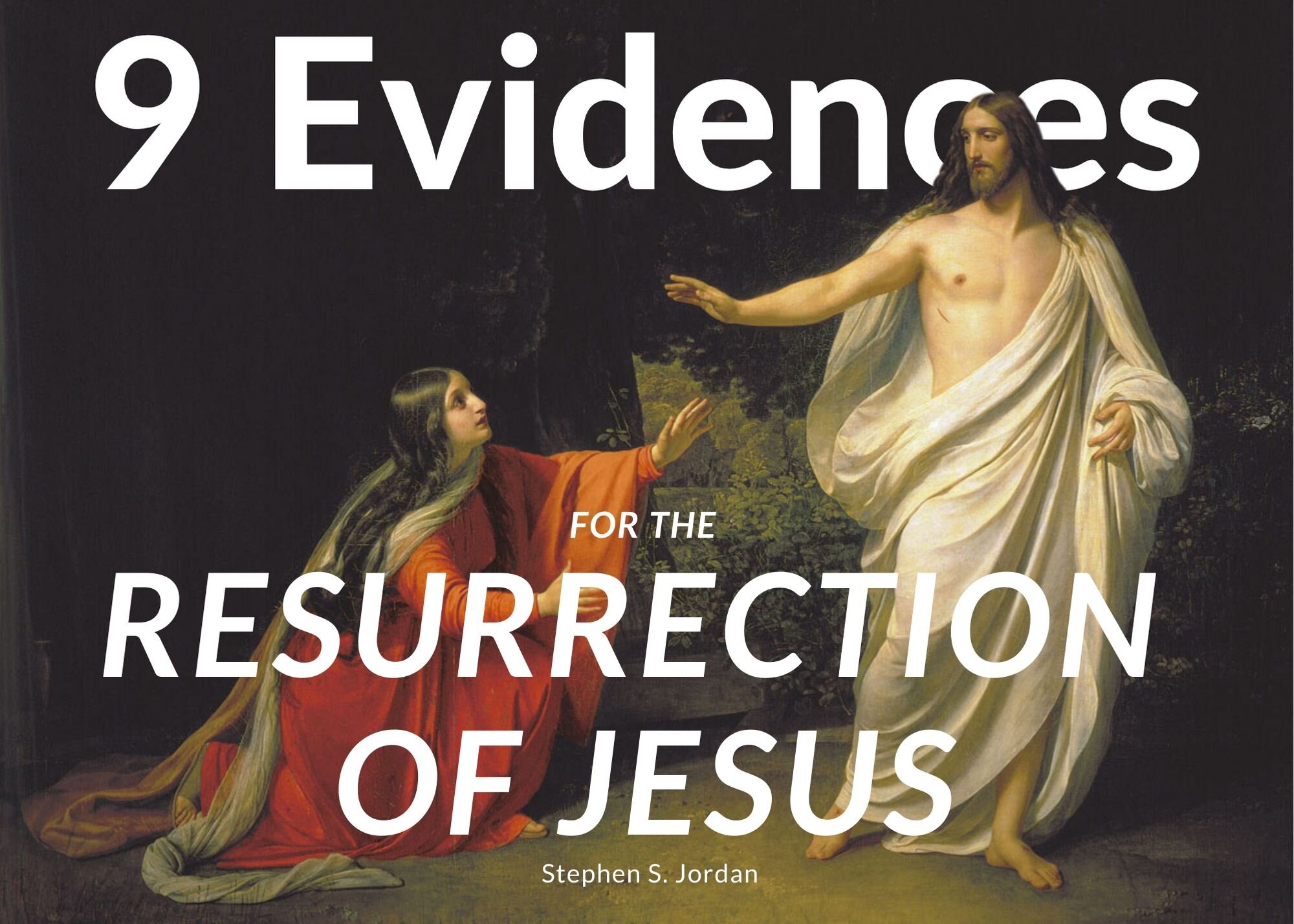Editor’s Note: Earlier this month, we shared an article, “African Methodism will not bow the knee to US progressivism”, on social media. Charlie commented the following:
So, I would consider myself for this topic to be part of the aforementioned US Progressives. However, this article, while being very pointed, seems to a good job representing the African Church.
I do have a request though, would it be possible for you guys to release an article on the, honestly, strongest argument presented the conference for the One Church Plan? I feel like they're missing the component of the opposing argument and I would really appropriate the honest response to the US Progressive camp from an evangelical perspective as opposed to an article very caught up in the political side (money, power, etc)
We asked our resident Methodist scholar, Dr. Tom Thomas, to give a reply.
Thank you very much for asking for the best arguments for the acceptance of homosexual practice, marriage and leadership in the church and an evangelical response. That you are interested in thinking through this difficult issue by examining both the ‘pros’ and ‘cons’ encourages me. Too often today both sides of an issue are not given fair opportunity for rational interaction. Permit me to make this proviso: our subject is way too long for a piece this short. Nonetheless, your request is a worthy exercise. Let us try to drill down to main arguments. May this piece spur your study of fuller treatments.
The determinative factor of both the progressives (those advocating acceptance of homosexual practice) and traditionalists (those advocating sexual relations only between one man and one woman in marriage) viewpoints is their take on the shared text: Holy Scripture. One’s assumption here is the basis of a continental divide between whether Scriptural commitments on homosexuality run east, or west! Progressives reassure traditionalists ‘we love the Bible’ and ‘believe in its authority’. ‘Good’, says the traditionalist, ‘but cannot one also love the United States Constitution and believe in its authority’? Is not the paramount question whether the Holy Scripture is the God-breathed Word to human authors who unfailingly express what God desires written; or, whether it is a record of humanly, gifted people’s reflections of their experiences of God? The traditionalist sees Scripture as God’s revelation to his people; the progressive as human revelation of God-experiences. For the traditionalist the issue is not Scriptures’ authority but its supreme authority. Is or is not the Bible God’s inspired, infallible word preeminent over every authority? While progressives privilege ‘the totality of human experience’ and subject all texts to it, the traditionalist submits every authority to Scriptural authority.
In assuming this, therefore, the progressives can say the debate over homosexuality is not about words in the Bible but about what the words ‘mean for us today’. The GC 2019 Delegate newsletter of the pro-acceptance United Methodist group ‘Mainstream UMC’ says the meaning of the Bible’s words change over time. Much of the Bible is ‘descriptive truth’ which means what was ‘true’ in former times and cultures is not ‘true’ today. The traditionalist responds the authors’ words mean today just what they meant then, in South Korea or Kansas. The meanings’ ‘significance’ may vary and continuing research enlightens the contexts, but what God meant to say then God means to say today.
You can see this play out in specific biblical texts (called ‘clobber texts’ because they are overwhelmingly negative regarding homosexuality) invariably at the center of the debate. Leviticus 18: 22 (also, 20:13) states, ‘You shall not lie with a male as with a woman; it is an abomination.’ Receiving accolades for his recent theological argument for same sex covenantal partnerships, Durham University Professor Robert Song acknowledges with traditionalists that it is difficult to see any other reference here than to homosexual anal intercourse. However, Professor Song and other progressives typically discount the force of the prohibition. They are seen privileging contemporary experience over Scriptural authority when they argue such a law as the above was part of an Old Testament Jewish ritual, purity code fulfilled in Christ. Like ritual, dietary laws (eating pork), they are no longer binding on Christians today. Traditionalists in a long tradition beginning in the New Testament distinguish between Jewish purity practices which are obsolete for Christians and Old Testament moral prescriptions such as homosexuality which are not. The New Testament renews and reinforces these moral prescriptions (not ‘descriptions’) in the manner of Jesus who said he did not come to abolish the law but to fulfill it.
A second major passage in the homosexual debate is Romans 1: 18-32. Herein the apostle Paul describes how rather than honoring God as God, persons rebelled against Him and exchanged the worship of the Creator for the creation. This idolatry subverted the creative order God established in Genesis 1. God constituted the nature of ‘Adam’ (Man, humankind) in His image and likeness, gender-differentiated, opposite-sex pairings, male and female. Human revolt against God results in a dishonorable disordering of creation plainly demonstrated in males having sexual intercourse with males and females with females. Professor Robert Song basically agrees. However, Professor Song says, the reason same-sex sex is a sin for Paul is only because it is non-procreative sex. Procreative sex producing children is the only reason for gender differentiation. Paul rejects homosexuality on the grounds it prevents offspring. Professor Song declares Paul’s concern for procreative sex of two opposite genders is now superseded. Christ’s resurrection has brought in a new, eschatological order, a new age, which reorients male-female procreative sex. Jesus, speaking of this new age says, ‘Those who belong to this age marry and are given in marriage; but those who are considered worthy of a place in that age and in the resurrection from the dead neither marry nor are given in marriage’(Luke 20: 34f). A new vision of resurrected life makes the old age heterosexual marriage with its procreative sex obsolescent. Resurrection life envisages a trajectory of life beyond marriage and procreative sex. Song comments that same-sex covenantal partnerships might have been impossible for Paul and the New Testament. Are they not now possible for us?
A traditionalist’s response is threefold. First, the complementarity of gender differentiation of male-female pairing is not limited, as Song says, to the difference in male-female genitalia (responsible for children). They run as deep as every cell’s sex chromosome pairings, whether xx (female) or xy (male). The implications of gender differences of anatomy and physiology extend well beyond the necessity of procreation. Second, Robert Gagnon, acclaimed New Testament scholar who has written exhaustively on homosexuality, notes Paul, in contrast to others of his day, recommended sexual intercourse in marriage not just for procreation but for mutual satisfaction of desire that might otherwise result in promiscuity (1 Corinthians 7: 2-5). Third, when Jesus speaks of those who ‘neither marry nor are given in marriage’, he is speaking not of the ‘in between times’ in which we Christians now live but the end of time when mortal death is no more and ‘a new heaven and a new earth’ have come. The new creation has not transcended heterosexual, procreative sex!
Progressives submit the possibility of accepting same-sex covenantal partnerships on account of the church changing its mind over the years on such social issues as slavery, women’s issues, and divorce. Logically speaking, this argument digresses from the moral issue at hand, homosexuality. Further, every one of these subjects is a distinct issue which must be discussed in its own right. The Church may be, and has been, at variance and back and forth on certain positions but God’s Word is constant in its meaning. However, as Robert Gagnon states, where churches have moderated positions you can usually find a New Testament trajectory that has opened a countervailing possibility. Nevertheless, for instance, in regards to slavery, the New Testament never affirms slavery is a good institution. New Testament scholar Ben Witherington shows Paul takes God’s people where they are but like Philemon, moves them to realize the Gospel’s implications and treat Onesimus as a free brother in Christ. The early church worked to emancipate slaves but some churches in the nineteenth century did not.
Be that as it may, the Church and its theologians with roots in Old Testament teaching have never wavered, until very recent times, and always regarded the practice of homosexuality a sin.
Progressives claim Jesus never spoke of homosexuality and the word is not even in the Bible. They say the issue is not important to the New Testament. Traditionalists respond Jesus reinstituted the natural, created order of marriage of Genesis as a biological, spiritual and interpersonal union of the complementary pairing of one man and one woman. Jesus’ statement on marriage excludes the legitimacy of homosexual behavior, or, for that matter, any extra marital sex. Indeed Jesus condemns porneia (fornication) in Matthew 15: 19 denouncing any sexual intercourse outside of the marriage covenant. True, the actual word ‘homosexual’ is not used in the Bible (neither is the word ‘trinity’) but a rose by any other name is still a rose. In another critical passage, 1 Corinthians 6: 9-10 Paul says ‘male prostitutes (malokos), sodomites (arsenokoitai)…none of these will inherit the kingdom of God.’ Progressives assert Paul is not here condemning loving, same-sex partnerships but only homosexual prostitution. This follows what they deem is the problem in Genesis 19 - homosexual, gang rape and not consensual, homosexual acts when the men in the town seek to have sex with the visitors in Sodom and Gomorrah. Their contention Paul is condemning unloving, brutal homosexual acts centers on Paul’s use of two debated Greek words, malokos and arsenokoitai. Malokos means ‘soft’ or ‘effeminate’ and is likely a young male posing effeminately as a woman as the passive partner to attract another male (often for prostitution). The second word arsenokoitai is literally translated ‘men who take males to bed’ and means active, consensual partners in homosexual intercourse. When one considers Paul’s Jewish, religious culture’s aversion to homosexuality, traditionalists affirm with New Testament scholars and Robert Gagnon these two terms together comprehend every conceivable passive and active type of same-sex intercourse which Scripture altogether condemns. To summarize, Paul in 1 Corinthians 6: 9 and elsewhere with Jesus condemns all forms of sexual intercourse outside the marriage of a man and a woman.
A prominent, persistent narrative of progressive and homosexual proponents is that homosexuals are ‘born that way’. I have no doubt homosexuals feel this way. Professor of Medicine Emerita of the University of Kansas Dr. Barbara Lukert states ‘there is consensus among human sexuality researchers and therapists that homosexuality is unchosen and in most cases unchangeable.’ National proponent for homosexual inclusion in the United Methodist Church, the Rev. Tom Berlin states, ‘We believe sexual orientation is a way a person is created by God rather than a sin they commit against God.’ Believing that this is an immutable, human quality like skin color, progressives assert the church is discriminating against and excluding, oppressing, and hurting homosexuals as it has other minorities. As a traditionalist, I feel their passion about this; yet, I know of no traditionalist pastor who either desires or acts to exclude any member of the LGBTQIA community. Pastors want any body and every body to be in worship on Sunday! In fact, most traditionalist pastors have homosexuals in their church.
Nevertheless, truth and falsity are not emotional categories. Though progressives are highly motivated to land this argument, truth and falsehood deal with what is and is not, regardless of how one feels. In the 1990’s William Byne and Bruce Parsons of Columbia University reviewed the entire literature on the biology of homosexuality. Their conclusion: there is no biological or genetic theory for homosexuality which has scientific consensus. The New Atlantis journal reported in 2016, ‘Some of the most widely held views about sexual orientation, such as the “born that way” hypothesis, simply are not supported by science.’ The American Psychological Association states: there is no scientific consensus on the cause of homosexuality. Objectively speaking, we cannot claim homosexuality is inherent. Even if there were some biological connection, as is suggested in alcoholism, the Bible speaks not of one’s proclivity or orientation, but of one’s behavior. The progressive lament that traditionalists by their rejection of homosexual behavior are oppressing and discriminating against homosexuals whom God has created this way is neither scientific nor biblical but emotionally manipulative.
Nevertheless, progressives contend those who disallow homosexual behavior are ‘judging’, condemning and rejecting homosexuals as unacceptable and to be excluded. Indeed, all have sinned and fall short of the glory of God but Jesus welcomed and accepted all sinners. Jesus said, ‘Let anyone among you who is without sin be the first to throw a stone...‘do not judge in order you may not be judged’ he said. Traditionalists agree with progressives Jesus sought out and radically loved marginal persons (including sexual sinners). Traditionalists are heard to be condemning the practice when they say ‘no’ to homosexual behavior. Often they are in a position of having to condemn the practice before they are able to show they accept the person. Our heart is to accept the person though not the practice. Is not this Jesus’ emphasis? Like the woman who interrupted his dinner, she had been a notorious sinner, guilty. She left a cleansed sinner forgiven. Jesus said to her, ‘Go and sin no more’. At this point progressives and traditionalists part company. For the reasons recited above, when they say Jesus loves and accepts homosexuals, they mean ‘lock stock and barrel’ – person and behavior. We love the sinner - but hate the sin.
Indeed, Jesus says in Matthew 7:1, ‘Judge not’. That is, do not be a judgmental person putting dark constructions on ambiguous situations. Do not pronounce eternal condemnation on anyone. Nonetheless, Jesus says in Matthew 18: 15 ‘rebuke’ those who sin. Bring their sin to light. Point it out so that it may be forgiven. ‘Open rebuke is better than hidden love’ says Proverbs. Identifying same-sex sex as sin is not judging. It is trying to bring to bear grace and mercy.
Our differences range over Scriptures’ absolute authority, textual interpretations, theology, and even science. At the end of the day, through such interchanges as this, the clarity of truth will shine like gold in a stream and the fullness of grace will come.












































